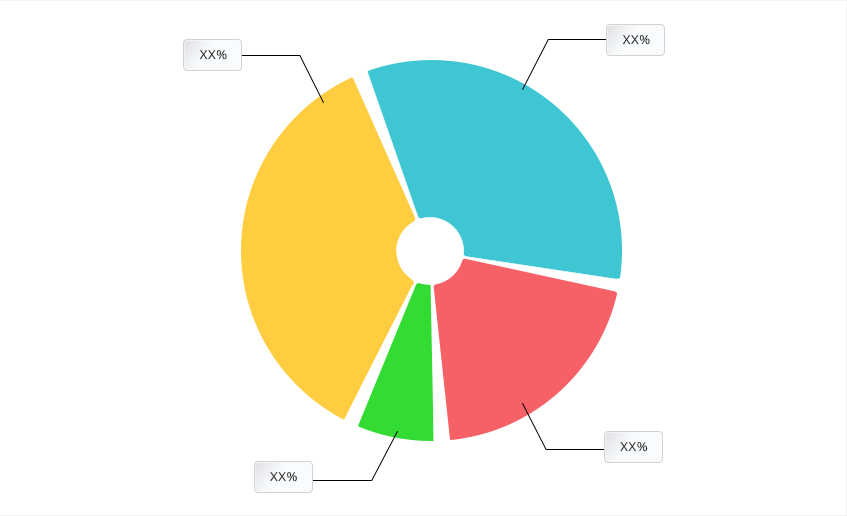Scope of the Study
For the purpose of analysis, the report covers a micro-level study of different by type, by technology, by output type, by operating temperature, by application. The analysis presented in this section elaborates the attractiveness of each region to identify the lucrative market areas for investment. Region-wise, the report includes the Digital hall effect sensors market trends across North America, Europe, Asia-Pacific, and LAMEA. In addition, the study covers quantitative analysis for Digital hall effect sensors market from 2023 to 2032. The CAGR is calculated for 2024 to 2032, considering all the macro- and micro-economic factors, which impact the growth of the Digital hall effect sensors market.
Market Landscape
The study comprises parent/peer market analysis, patent analysis, pricing analysis, top player positioning in the base year, Porter’s five force analysis, value chain analysis, impact of government regulations on the market, and market dynamics (drivers, restraints, and opportunities), which directly or indirectly impact the growth of the market.
The Digital hall effect sensors market is segmented on the basis of by type, by technology, by output type, by operating temperature, by application.
Digital hall effect sensors market Revenue (%), By type

Regional Analysis
The Digital hall effect sensors market is analyzed across four key regions, which include North America, Europe, Asia-Pacific, and LAMEA. The key countries contributing toward the growth of the market include:
North America: U.S., Canada, and Mexico
Europe: Germany, UK, Italy, Spain, France, and rest of Europe
Asia-Pacific: India, China, Japan, South Korea, Australia, and rest of Asia-Pacific
LAMEA: Brazil, Saudi Arabia, South Africa, and rest of LAMEA
Key companies identified in the report are Allegro MicroSystems, Asahi Kasei, Renesas Electronics Corporation, NXP Semiconductors N.V, STMicroelectronics N.V, Infineon Technologies, AMS Technologies AG, Toshiba Corporation, TEMPO Automation, Honeywell International Inc.
Research Methodology
AMR offers its clients with comprehensive research and analysis based on a wide variety of factual inputs, which majorly include interviews with industry participants, reliable statistics, and regional intelligence. The in-house industry experts play an instrumental role in designing analytic tools and models, tailored to the requirements of a particular industry segment. These analytical tools and models refine the data & statistics and enhance the accuracy of our recommendations and advice.
Key Questions Answered in AMR’s Digital hall effect sensors market Report
The Digital hall effect sensors market analysis covers in-depth information of major industry participants. Porter’s five forces analysis helps analyze the potential of buyers & suppliers and the competitive scenario of the industry for strategy building. Major countries have been mapped according to their individual revenue contribution to the regional market. The comprehensive report on Digital hall effect sensors market addressed critical questions for the players operating in the market or planning to enter in the market, and help them to take strategic decisions.
How do you see the growth of Digital hall effect sensors market in the next five years?
What are the top winning strategies adopted by the leading players operating in the market?
Who are the targeted customers in the Digital hall effect sensors market?
Who are the major players in the Digital hall effect sensors market
Key Insights Of Digital hall effect sensors market Report
AMR helps analyze the value chain of a particular market from all stakeholder’s perspectives
The study includes Porter’s five forces analysis to understand the competitive scenario of the industry and role of each stakeholder
Market dynamics includes drivers, restraints, and opportunities of the market. Drivers state the factors that boost the growth of the market, whereas restraints are the factors that are likely to hamper the market growth. Opportunities are the factors that act as the catalysts of the market. All these factors, along with data facts, are covered in the study
The parent/peer market analysis helps in understanding the parent market, and estimate the share of the Digital hall effect sensors market in the parent market. In some cases, it exhibits a comparative share analysis between Digital hall effect sensors market and its peer products.
Digital Hall Effect Sensors Market Report Highlights
| Aspects | Details |
| By Type |
|
| By Technology |
|
| By Output Type |
|
| By Operating Temperature |
|
| By Application |
|
| By Region |
|
| Key Market Players | Toshiba Corporation, Honeywell International Inc., TEMPO Automation, AMS Technologies AG, STMicroelectronics N.V, Asahi Kasei, NXP Semiconductors N.V, Infineon Technologies, Allegro MicroSystems, Renesas Electronics Corporation |
Loading Table Of Content...



